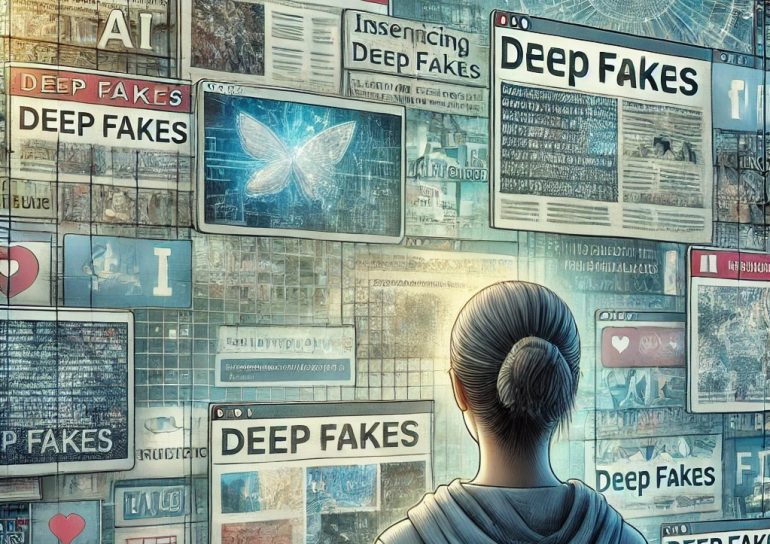- Many users struggle to distinguish AI-generated content from genuine information.
- Media literacy is not keeping pace with the rapid development of AI technologies.
- Confidence in identifying online misinformation has stagnated since 2021.
- The rise of sophisticated AI-generated content, like deep fakes, poses new risks.
- Addressing these challenges requires enhancing critical thinking and media literacy skills.
- Privacy concerns, algorithmic biases, and the digital divide exacerbate the problem.
- Improving media literacy can empower users and strengthen democratic processes.
Main AI News:
As the digital landscape evolves rapidly, a recent study highlights a critical issue: many social media users struggle to differentiate between genuine and artificial intelligence-generated content. This widening gap in media literacy is alarming as generative AI technologies advance faster than the skills needed to discern misinformation, leaving users increasingly vulnerable.
The AI industry saw a major breakthrough in 2022 with the launch of OpenAI’s ChatGPT. This development attracted significant investment and expanded the array of AI tools reshaping the digital environment. However, the “Adult Media Literacy in 2024” study from Western Sydney University paints a concerning picture. In a survey of 4,442 Australian adults, participants expressed confidence in performing only four of 11 critical media-related tasks. Even more troubling, the ability to recognize online misinformation has stagnated, with only 39% of respondents in both 2021 and 2024 feeling confident in verifying the accuracy of information online.
This slow progress in media literacy is particularly worrisome given the rise of sophisticated AI-generated content, including deep fakes and fake news, which pose severe risks to the integrity of the digital information ecosystem.
Addressing these challenges is increasingly important for businesses and individuals alike. Critical questions include how to enhance critical thinking skills for evaluating digital content, the role of educational institutions in promoting media literacy, the responsibility of technology companies in combating misinformation, and the ethical implications of using generative AI to create fake news.
The rapid spread of misinformation is a significant obstacle to improving media literacy. Users often struggle to navigate the overwhelming volume of information online, making it difficult to distinguish fact from fiction. Algorithmic biases further complicate this by creating echo chambers that reinforce misinformation. Privacy concerns arise from the data collection used to target users with personalized content, potentially manipulating opinions and behaviors. Moreover, the digital divide, fueled by economic disparities and uneven access to technology, exacerbates inequalities in information literacy across different demographics.
Despite these challenges, improving information literacy offers significant benefits. It empowers individuals to make informed decisions, engage critically with online content, and safeguard against misinformation. Additionally, a more informed public fosters responsible digital citizenship and strengthens democratic processes by prioritizing facts and evidence over falsehoods.
However, the sheer volume of online content can overwhelm users, making it difficult to assess credibility. Cognitive biases and preconceived beliefs also hinder objective analysis, increasing vulnerability to misinformation. The dynamic nature of the online ecosystem demands continuous effort from individuals and organizations to stay informed, a daunting but necessary task.
Conclusion:
The disconnect between the rapid advancement of AI technologies and the slower progression of media literacy presents significant challenges for the market. As AI-generated content becomes more prevalent, the risk of misinformation grows, potentially eroding trust in digital platforms. This nuance underscores businesses’ need to invest in tools and programs that enhance media literacy, especially in the technology and education sectors. Companies that proactively address these challenges will mitigate risks and position themselves as leaders in fostering a more informed and responsible digital society. The ability to navigate this complex landscape will be a key differentiator in the marketplace, influencing consumer trust and engagement.

